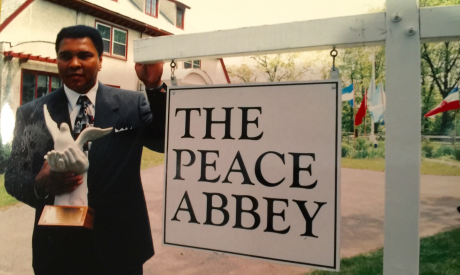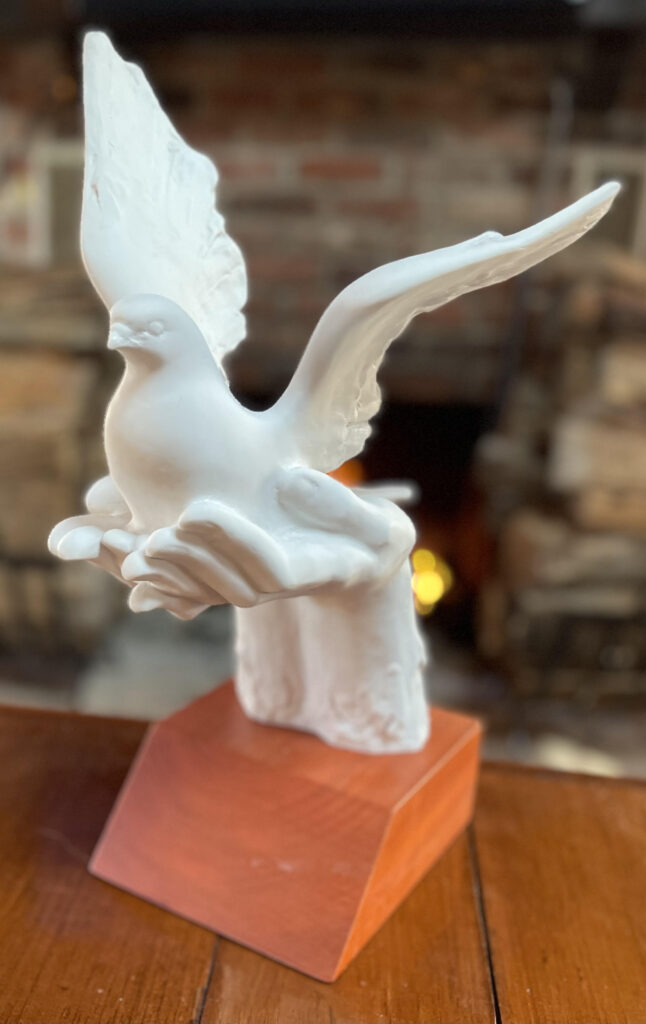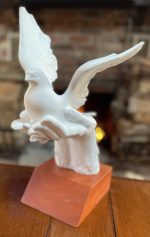
Posthumous Award Recipients
1. Anwar Sadat
President of Egypt for his historic and visionary trip to Israel in 1978 that, challenging the structures of an ancient enmity, led to the Camp David Accords and a peace treaty between the two nations.
2. Alva Myrdal
Swedish Disarmament Minister, Ambassador to India, college founder, author, and social reformer for her lifelong work on behalf of women’s rights, education reform, and the international disarmament movement.
3. Mahatma Gandhi
Lawyer, ethical vegetarian, and architect of the nonviolent resistance movement in India and South Africa for his creative approaches to civil disobedience in the founding of a peace movement that helped establish the freedom of an entire nation.
4. Peace Pilgrim
Wandering mendicant and peace activist for her unprecedented 28-year trip across America, in which she walked over 25,000 miles, talking to everyone she met about peaceful living.
5. Ben Linder
American mechanical engineering student for his efforts to provide hydroelectric power to a small rural town in Nicaragua, for which he paid with his life at the hands of an American-backed Contra soldier.
6. Abbie Hoffman
Political activist, author, founder of the Youth International Movement (Yippies), and member of the Chicago Seven for relentlessly pitting his rebellious spirit against the Vietnam War and other oppressive forces in the United States during the Sixties.
7. John Ono Lennon
Musician and peace activist for his music and anti-war protests, which helped to bring to the attention of an entire generation the ideals of peace and love.
8. Oscar Romero
Archbishop of El Salvador for his courageous battle on behalf of the poor communities in his country seeking democratic freedom and social justice from the military powers that oppressed them.
9. Dorothy Day
Publisher, pacifist, civil disobedient, and altruist for her work with the poor and founding of the Catholic Worker’s movement.
10. Robert Francis Kennedy
U.S. Attorney General, senator, and presidential candidate for his activities on behalf of social and economic justice that led to a political and social awakening while on the campaign trail in 1968.
11. Rev. Dr. Martin Luther King, Jr.
Pastor and visionary civil-rights leader for his ethical and spiritual leadership in the historic civil rights campaign that forever changed the American nation. King brought the Gandhi tradition of nonviolent social activism to the American struggle for civil rights.
12. Woody Guthrie
Songwriter and social activist for the great artistry and empathy of his classic songs, which conveyed the plight of the common person, from migrant workers in California to union organizers in New York.
13. Glenn Andreotta
American soldier in Vietnam for his unusual bravery and compassion in helping, along with helicopter crew members Hugh C. Thompson Jr. and Lawrence Coburn, to save civilian lives during the My Lai massacre in Vietnam in 1968.
14. Joseph Moakley
US Representative and respected voice of conscience in Congress for his unrelenting commitment to ending the war in El Salvador and throughout Central America and for the compassionate care he gave his constituents in Massachusetts for nearly three decades.
15. Samantha Smith
American schoolgirl, child peace activist, and Goodwill Ambassador for helping to bring about a better understanding between the peoples of the United States of America (USA) and the Soviet Union of Socialist Republics (USSR) and, as a result, reduce the tension between the superpowers that were poised to engage in nuclear war.
16. Virginia “Ginny” Bouvier
U.S. Institute of Peace and Latin America scholar, key international advisor to Colombia’s peace process with the FARC who helped ensure the inclusion of women, Afro-Colombians, and other previously excluded groups for her unrelenting devotion to peacebuilding in Columbia and throughout the world.
17. Andrea Binder
Teacher and mentor to countless individuals for her loving leadership training that sought to dissolve personal concerns and issues and put the welfare of human beings first in the world.

